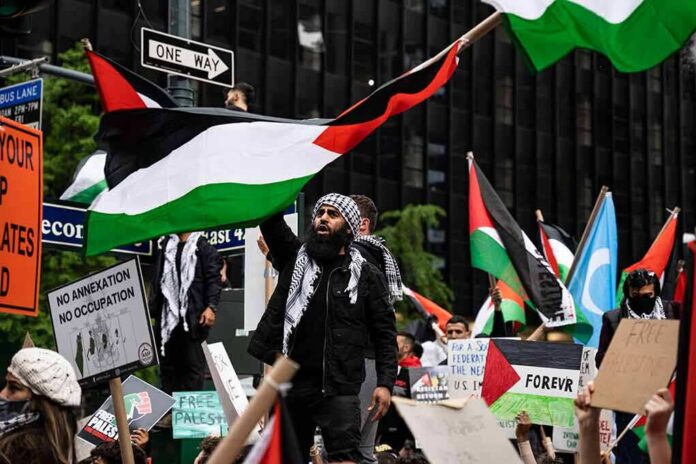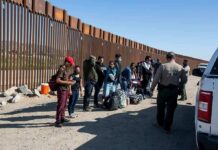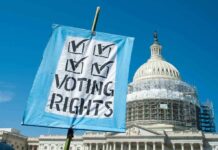
UK sanctions are failing to deter sanctioned Israeli settlers who are now brazenly expanding illegal outposts in the West Bank, intimidating Palestinian families out of their homes as international condemnation falls on deaf ears.
Key Takeaways
- Israeli settlers under UK sanctions, including Neria Ben Pazi and Zohar Sabah, continue establishing illegal outposts in the West Bank despite international condemnation.
- The UK has suspended free-trade negotiations with Israel and imposed sanctions on settlers, citing “indefensible” actions in Gaza and the West Bank.
- Illegal settler outposts have rapidly increased to at least 196, with 29 established last year alone, causing Palestinian displacement.
- Settler violence has reached unprecedented levels, with over 1,100 attacks recorded in the past 10 months, with minimal accountability.
- Organizations with ties to the Israeli government have been implicated in supporting these illegal outposts despite their violation of both Israeli and international law.
Sanctioned Settlers Defy International Pressure
Two Israeli settlers recently sanctioned by the United Kingdom for violent activities are now leading the expansion of illegal outposts in the West Bank’s Mughayyir al-Deir village. Neria Ben Pazi and Zohar Sabah, targeted by UK sanctions for driving Palestinians from their homes, have shown complete disregard for international pressure as they continue establishing settlements that encroach dangerously close to Palestinian residences. These outposts represent a deliberate strategy to claim Palestinian land while intimidating local families into abandoning their homes and property.
The British government’s response has included suspending free-trade negotiations with Israel and imposing sanctions on Ben Pazi’s organization, Neria’s Farm. UK Foreign Secretary David Lammy has been vocal in his criticism, but the measures have had minimal impact on settler behavior. Palestinian families in the region report increasing harassment, threats, and violence, with many considering fleeing their ancestral homes simply to ensure their safety. The continued expansion of these outposts reveals the ineffectiveness of diplomatic sanctions without stronger enforcement mechanisms.
UK Takes Stand Against Israeli Actions
The United Kingdom’s decision to suspend trade talks and sanction settlers represents a significant diplomatic shift in response to Israel’s policies in both Gaza and the West Bank. The measures follow what British officials describe as a nearly three-month blockade of humanitarian supplies into Gaza, which has prompted international warnings about famine conditions. David Lammy’s strong condemnation signals growing frustration among traditionally supportive Western allies, but critics question whether these actions go far enough to influence Israeli policy.
“History will judge them. Blocking aid. Expanding the war. Dismissing the concerns of your friends and partners. This is indefensible. And it must stop,” said David Lammy, UK Foreign Secretary.
The UK’s actions may signal a broader shift in international opinion. The European Union is reviewing its trade pact with Israel, while France has intensified diplomatic efforts, including potentially recognizing a Palestinian state. British Prime Minister Keir Starmer has condemned the suffering of children in Gaza and called for a ceasefire. These developments suggest a widening rift between Israel and its traditional allies, though without coordinated economic pressure, the impact on Israeli policy remains uncertain.
Rapid Expansion of Illegal Outposts
The alarming growth of illegal settler outposts in the West Bank has accelerated dramatically in recent years, with BBC analysis showing that almost half of the current 196 outposts have been established since 2019. These settlements, illegal under both Israeli and international law, have direct connections to the displacement of Palestinian communities. Palestinian grandmother Ayesha Shtayyeh was among those threatened at gunpoint by settlers, forcing her to abandon her home. The psychological and physical intimidation tactics have proven devastatingly effective.
“Israeli policy to take as much land as possible hasn’t changed. But what has been changing under this current government is the total impunity for soldiers and settlers,” said Shai Parnes.
Evidence suggests organizations with ties to the Israeli government, including the World Zionist Organization and Amana, have been implicated in supporting these illegal outposts. Rather than preventing their growth, the Israeli government has retroactively legalized some settlements. The United Nations has repeatedly called for Israel to halt settlement activity and evacuate settlers, but Israel has rejected these demands. This pattern of expanding settlements appears to be proceeding with implicit government approval despite international objections.
Violence and Displacement Continue Unchecked
Human rights organizations report that settler violence has reached unprecedented levels, with over 1,100 attacks documented in just the past ten months. These attacks typically involve armed intimidation, property destruction, livestock killing, and direct violence against Palestinian families. The complaint process offers little protection, with extremely low conviction rates for Palestinians reporting settler violence. This accountability gap has emboldened settlers to act with increasing aggression, knowing they face few consequences.
“We strongly condemn the unprecedented levels of settler violence against the Palestinian community, as shown in the report, and have urged the Israeli authorities to end the culture of impunity and clamp down on those responsible,” said a UK Foreign Office spokesperson.
Not all Israeli citizens support these tactics. Groups like the Jordan Valley Activists, which include Israeli Jews like Gil Alexander, work to protect Palestinian shepherds from settler aggression. However, these peace-oriented efforts remain overshadowed by the more aggressive settler movements that receive tacit governmental support. The continued expansion of illegal settlements represents a significant obstacle to any future peace process and maintains a cycle of displacement and violence that shows no signs of abating despite international sanctions.












